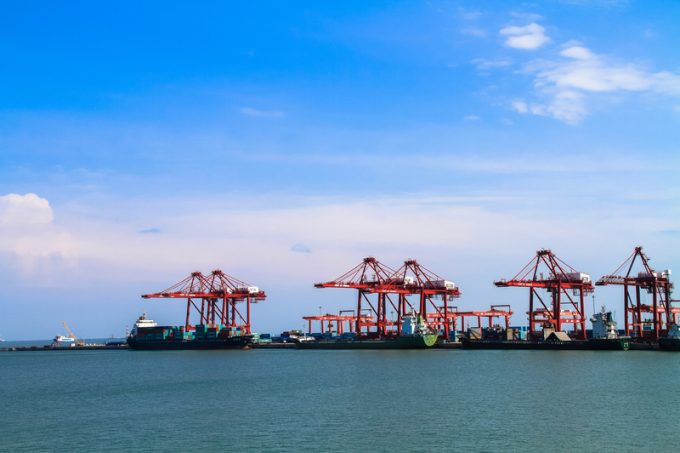
15 Jan Equipment and capacity squeeze sees South China cargo bookings suspended
Next month, shipping lines declared the temporary suspension of cargo bookings into South China, blaming local feeder operators for reduced availability.
The move has caused dismay among local forwarders who warned “not to hesitate” customers to take any chance of booking cargo before the Chinese New Year, which falls on February 12.
Last week, due to Covid quarantine rules affecting ship crews, OOCL announced a “sharp” decrease in available feeder space, telling customers that it would suspend bookings for ports in South China from 11 January until 23 February.
And a similar announcement was made by ONE, with restrictions beginning on 5 January and lasting until 26 February at some ports.
Guangdong, Guangxi, Hainan, Yunnan, Guizhou and Fujian are among the ports affected.
SeaIntelligence Consulting CEO Lars Jensen pointed out that while the suspensions did not include mainline deepsea boats, the underlying cause of the Covid-19 restrictions suggested “a wider market impact limiting the capacity of the feeder service and thus affecting the full scope of the feeder market in South China.”
Indeed, according to local forwarders, other mainline carriers are likely to suspend bookings as well. Peter Sundara, VP of Hong Kong-based LF Logistics’ Global Ocean Product, said the booking suspensions “could not have come at a worse time.”
This will have an effect on intra-Asian movements and cargo ties from feeders to mainline vessels in Hong Kong and South China’s main ports. If these feeders are scheduled to transfer empty boxes to key export gateways, it could also exacerbate the empty-repositioning efforts of carriers.
And, he added, with clients already rushing to ship goods before Christmas, the suspensions could cause delays in the celebration of the Chinese New Year.
“Alternatives such as cross-border trucking need to be looked for by customers, but capacity will depend heavily on trucker availability,” Mr. Sundara said.
The increased use of trucks instead of feeder vessels in the Pearl River Delta would mean higher freight prices for both importers and exporters, David Fan, sales manager at Twings Supply Chain, said.
“The usual shortage of truck drivers during the holiday period will arrive earlier, given the increased demand,” he explained.
Mr Fan added that while the suspensions announced were due to quarantine conditions, the key cause may be the absence of empty container equipment and “not enough cargo to load” instead.
Indeed, due to the persistent shortage of facilities, there have been rumours of vessels leaving China underutilised in some trades. “One Chinese forwarder warned its international partners that the suspensions would exacerbate the current capacity crunch, adding: “Whatever solution my team has, please discuss it as quickly as possible with your customer and simply take it if the cargo is needed.
It would be an impractical idea and not feasible to wait for rate declines or further options. At least until after Chinese New Year, it won’t be possible. Without hesitation, the possibility of shipment could be gone in a second.

